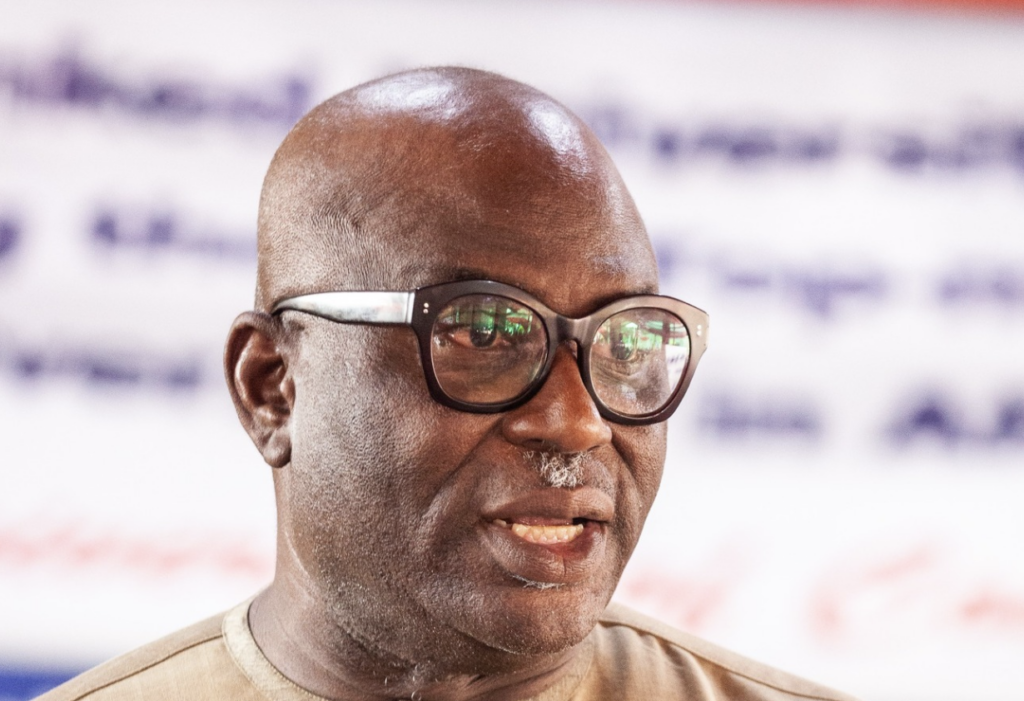Deputy Interior Minister Ebenezer Terlarbi has defended government’s decision to deport rather than prosecute foreign nationals caught engaging in illegal mining, popularly known as galamsey.
He insists that repatriation is a more practical and effective approach given the systemic frustrations within Ghana’s judicial and correctional systems.
Speaking on PM Express on Tuesday, April 8, Terlarbi admitted the policy isn’t without criticism but argued that the decision is rooted in “realities on the ground,” including the backlog in court proceedings, overcrowded prisons, and the logistical nightmare of handling mass foreign arrests.
“The fact is,” he explained, “we know when it comes to litigation in this country—dealing with our courts—it can sometimes be very frustrating. We have instances where people are arrested, and we prefer repatriating them rather than taking them through our courts.”
He said many of the foreign nationals, when arrested, are quick to demand trial, lawyer up, and exploit legal technicalities, which often end up delaying justice.
“They have lawyers, which is their right, and they need to be proven guilty by our courts,” he said. “But the fact is that the situation on hand, we cannot do things the same way and think that we’ll have different results. We need to be a little innovative.”
Mr. Terlarbi stressed that deportation is not about letting culprits off the hook, but rather about preventing a bigger breakdown of the system.
He cited identity verification challenges, stating: “You arrest some of them, then they tell you they don’t have their passport, and their identities become difficult to establish. Once they get into the system, it is difficult to track some of them.”
The Deputy Minister also raised concerns about prison capacity.
“We are looking at 1,400 inmates we have now, and feeding them is even a problem,” he lamented.
“So if there’s a way not to exacerbate the situation by sending them back to their home countries, I think that I would opt for that.”
Pressed on whether the government was applying double standards by insisting on due process for Ghanaians while fast-tracking deportation for foreigners, the Deputy Minister pushed back.
“Not really,” he said. “Let’s be realistic, you arrest about 80 Chinese, and you have to find a place to keep them. Sometimes, even vehicles to take them to court are a problem. You go to court, and they succeed in getting bail.”
When challenged that the same challenges apply to Ghanaian suspects, Mr Terlarbi agreed in part but added, “There are a few things I wouldn’t like to disclose. Some of the things that happen behind the scenes, I wouldn’t like to disclose everything on air or in public, but there’s so much going on. In fact, if we don’t take care, we are going to lose this fight again.”
The Interior Minister’s directive, announced earlier this week, also includes an immediate shake-up of the police hierarchy in mining zones, replacing all regional, divisional, and district commanders who have stayed long in those jurisdictions without achieving results in the fight against illegal mining.
But the repatriation component of the policy, which Mr Terlarbi defends, continues to stir public debate.
Critics argue it creates a two-tier system of justice and undermines Ghana’s commitment to fighting transnational environmental crimes.
Still, the Deputy Minister insists the government is doing the best it can under difficult circumstances.
DISCLAIMER: The Views, Comments, Opinions, Contributions and Statements made by Readers and Contributors on this platform do not necessarily represent the views or policy of Multimedia Group Limited.

